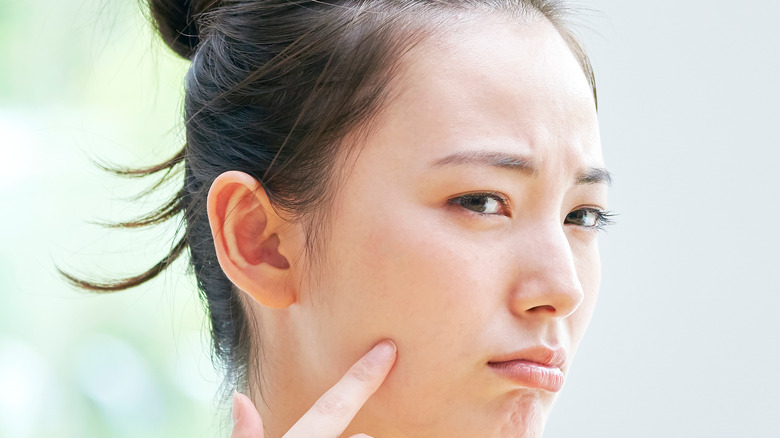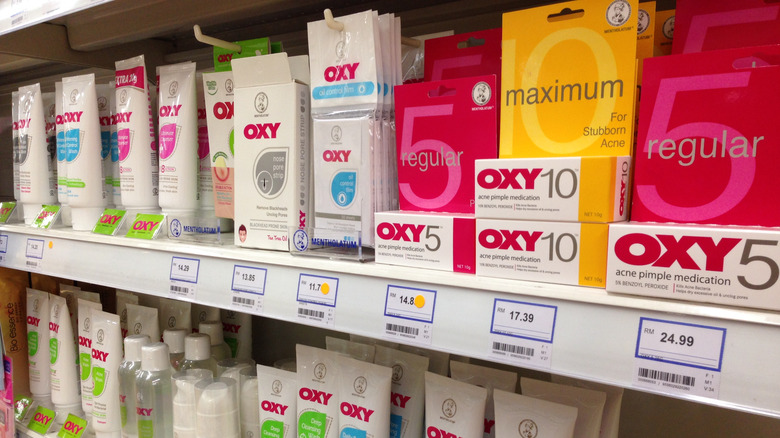This Is What Really Causes Whiteheads
We are all familiar with whiteheads, often simply called "zits." Those pus-filled pimples seem to pop up right at the wrong time and add an unwanted look to our face, back, or neck — but what exactly causes whiteheads? Even more importantly, how do you get rid of them? Luckily, the answers to both of these questions are very simple and may help us rid our lives of whiteheads without much trouble.
According to the Cleveland Clinic, whiteheads are a very common condition that usually does not reflect any serious underlying condition. Whiteheads occur when oil or dead skin gets trapped inside a skin follicle. The white pus itself is caused by bacteria called Propionibacterium that actually lives on our skin most of the time, but when trapped inside a follicle, it becomes inflamed (via MedicalNewsToday). This is why whiteheads are more common in those with oily skin, like teenagers, whose hormones cause the skin to produce more sebum. This oily, waxy secretion tends to lead to more blockages of skin pores (via Children's Hospital of Richmond).
How to get rid of whiteheads
Frequent facial washing is a good way to prevent whiteheads from popping up, as it reduces the amount of dirt and oil on your face. This reduces the chances of a follicle becoming blocked. Once you have whiteheads, there are several over-the-counter medications that have proven effective for clearing them up. Many of these products include salicylic acid, azelaic acid, benzoyl peroxide, or retinol vitamin A derivatives (via the Cleveland Clinic). These medications open pores and dry up the oil that is behind the forming of the whiteheads.
For those who have long-term problems with whitehead breakouts that do not get better with improved hygiene or over-the-counter medications, a stronger topical or internal antibiotic treatment may be prescribed by a doctor. You should not pop whiteheads, as tempting as that may be — this may introduce more bacteria into the pore, which could lead to a skin infection. Scarring is also more probable if you pop the zit instead of letting it resolve itself or treat it topically.


